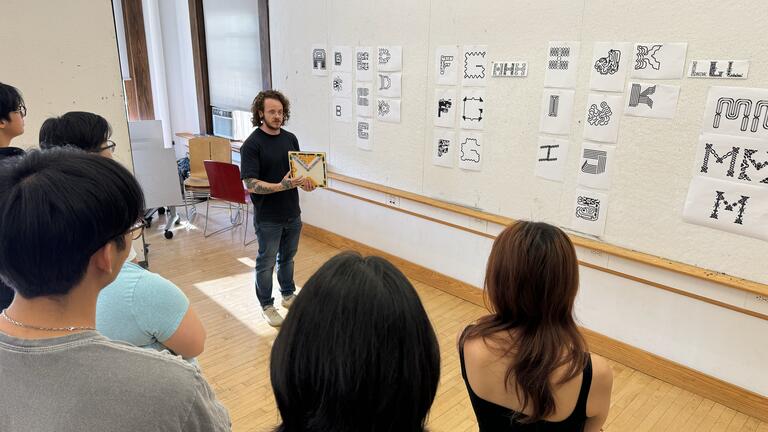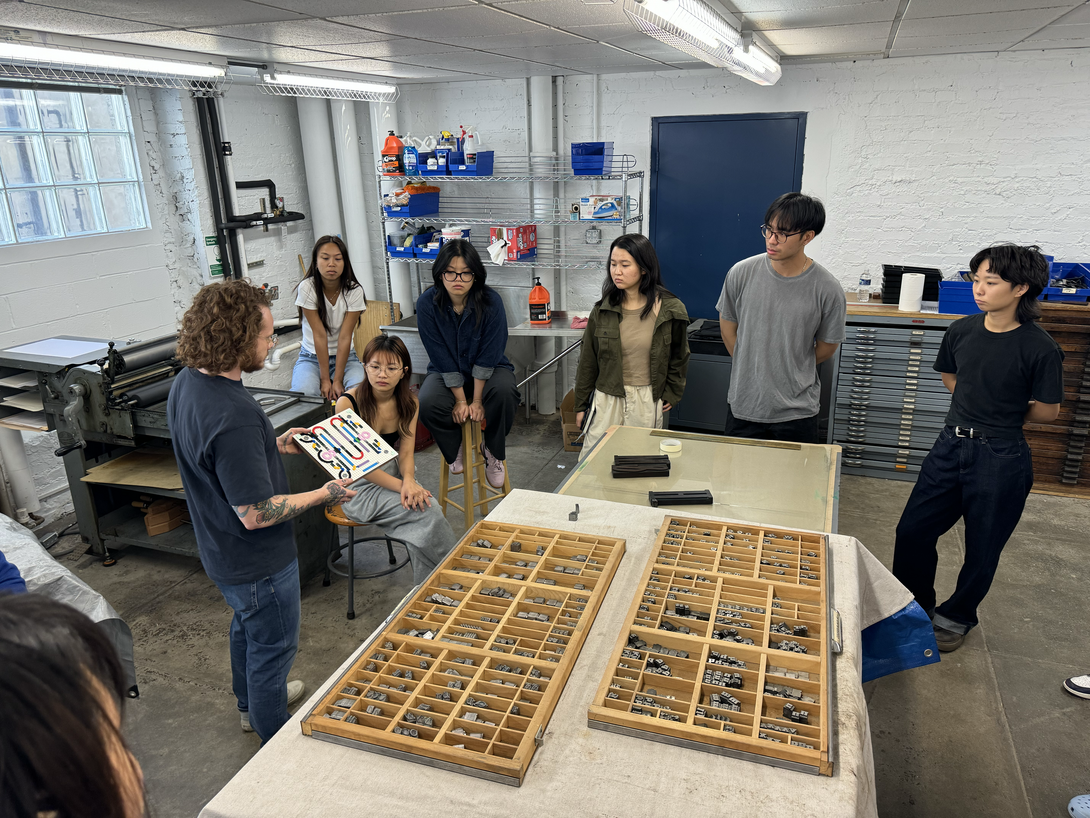Kelsey Elder Receives 2024 Communication Design Educators Award for Transformative Typography Course

Carnegie Mellon University School of Design faculty member Kelsey Elder has been named the recipient of the 2024 Communication Design Educators Award in the Teaching category by Design Incubation—an honor that celebrates his innovative contributions to design education and the continued impact of his course Variable, a typographic journey that merges code, culture, and critical making.
As an Assistant Professor, Elder has spent the last five years shaping Variable, an elective course that pushes the boundaries of how typography is taught. Built around the metaphor of designing and test-driving custom-built cars, Variable invites students to explore fonts as engineered vehicles—each one a tool to navigate and reimagine the landscape of language and communication.
“It’s humbling that this award recognizes teaching, as design pedagogy is a central part of my creative practice,” Elder shared. “Variable is a course where so much of my research takes tangible form over the last five years, so for it to be recognized feels like a celebration not only of that effort, but also a celebration of the students who brought it to life with such curiosity and depth. It wouldn’t be what it is without them.”
The 2024 Communication Design Educators Award recognizes excellence in pedagogy, scholarship, and service in higher education. Elder’s course stood out for its unique structure and imaginative integration of typographic history with computational experimentation. A panel of respected jurors—including Steven McCarthy, Douglas Kearney, Doug Barrett, Basma Hamady, and Kali Nikitas—selected Variable as this year’s sole winner in the teaching category. Their decision reflects the course’s creative rigor and the way it reframes typography as an open, cultural, and technological system.

From its project titles—Kit Car, Paint Booth, Dune Buggy—to its blend of letterpress, scripting, and variable font design, Variable challenges students to think differently. Each assignment functions as a pit stop, pushing students to design, question, and prototype their own approaches to typographic form and function. Beyond craft, the course encourages a critical stance toward the tools and systems students inherit—and the ones they might one day invent.
“I hope students leave more curious than they entered, with a deep sense of possibility around typography and language—that these systems are not fixed but flexible, cultural, and full of potential," said Elder. "Whether or not they go on to become type designers is not the point. But I want them to feel empowered to question, reimagine, and even build the tools they use to design.”
A full archive of Variable is freely available at variable.teaching-type.com, where educators and learners alike can explore the curriculum, project prompts, and student work. Elder’s commitment to open teaching materials has made the course influential beyond Carnegie Mellon, contributing to a broader dialogue about the future of type education.
In his view, CMU’s School of Design plays a crucial role in allowing courses like Variable to thrive.
“The students here are curious and critical, which creates the perfect environment for a course like Variable—one that blends historical inquiry, technical exploration, and typeface design—to grow," said Elder. "Being part of the broader CMU community is also key; students in the course are also from disciplines like computer science, engineering, and architecture. That mixing in the studio allows for sharing diverse perspectives that foster unexpected connections between computation, culture, and craft.”